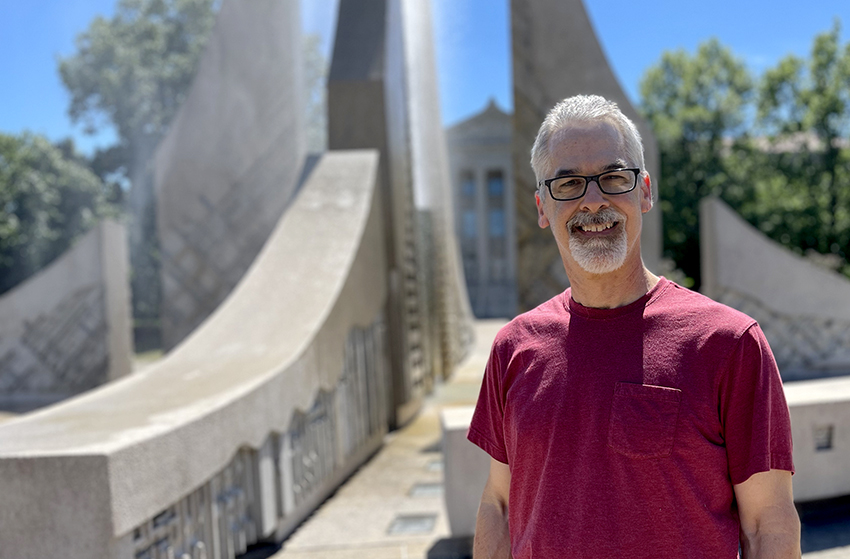GSA names Nathaniel Lifton a 2022 Fellow
07-01-2022

The Geological Society of America (GSA) has named Dr. Nathaniel Lifton a 2022 Society Fellow. Lifton is an associate professor in the Purdue University College of Science and has a joint appointment in the Departments of Earth, Atmospheric, and Planetary Sciences (EAPS) and Physics and Astronomy. He also serves as the Associate Head of EAPS.
According to the GSA, Society Fellowship is an honor bestowed on the best of their profession by election. GSA members are nominated by existing GSA Fellows in recognition of a sustained record of distinguished contributions to the geosciences and to the Geological Society of America.
Lifton, who has been with Purdue since 2010, studies the processes involved in shaping the landscapes on our planet, using rare isotopes produced in minerals at or near the Earth’s surface by cosmic rays from our galaxy that continuously bombard the Earth. An experience in an introductory geology college course sparked his passion for geology, an excitement that he works to convey to students in his introductory geology courses.
“I was a freshman at my local community college in southern California, with not much idea of what I wanted to do,” says Lifton. “An advisor said a lot of students like geology as an elective so gave it a try. I was on a field trip for that intro class and we went to a place called Wrightwood in the San Gabriel Mountains to look at a canyon formed by the San Andreas fault. Standing on the Pacific plate, looking across the deep canyon at the North American plate and visualizing the scale and significance of the feature I was looking at, just blew my mind. I knew right then and there I wanted to learn everything I could about geology, and I’ve never looked back.”
Throughout his research, his many field experiences around the globe have fed his continued love of geological sciences, but one location stands out. “Of all the field locations I have been to, Antarctica was an experience unlike any I’ve ever had - so pristine and beautiful and remote,” says Lifton. “I truly felt like an explorer - one could probably count on one or two hands the number of people who had previously been to many of the places we went, and even then, it’s unlikely that any had stood where we stood before.”
Lifton was nominated by current GSA Fellows Dr. Darryl Granger, and Dr. Kenneth D. Ridgway both are Purdue EAPS professors, as well as Greg Balco of Berkeley.
As a nominator, Granger had this to say about Lifton’s contribution to the geosciences. “Nat Lifton is a global leader in cosmogenic nuclides, widely recognized for his pioneering work developing reliable extraction methods for in situ 14C from mineral grains, and for his work modeling cosmogenic nuclide production rates, which serves as a benchmark for calculating exposure ages and other cosmogenic nuclide applications globally,” says Granger.
Lifton says, “I am very honored. This is something I never expected.”
About the Department of Earth, Atmospheric, and Planetary Sciences at Purdue University
The Department of Earth, Atmospheric, and Planetary Sciences (EAPS) combines four of Purdue’s most interdisciplinary programs: Geology & Geophysics, Environmental Sciences, Atmospheric Sciences, and Planetary Sciences. EAPS conducts world-class research in the Earth and Planetary sciences, educates undergraduate and graduate students, and provides our college, university, state and country with the information necessary to understand the world and universe around us. Our research is globally recognized, our students are highly valued by graduate schools, employers, and our alumni continue to make significant contributions in academia, industry, and federal and state government.
Writer: Cheryl Pierce